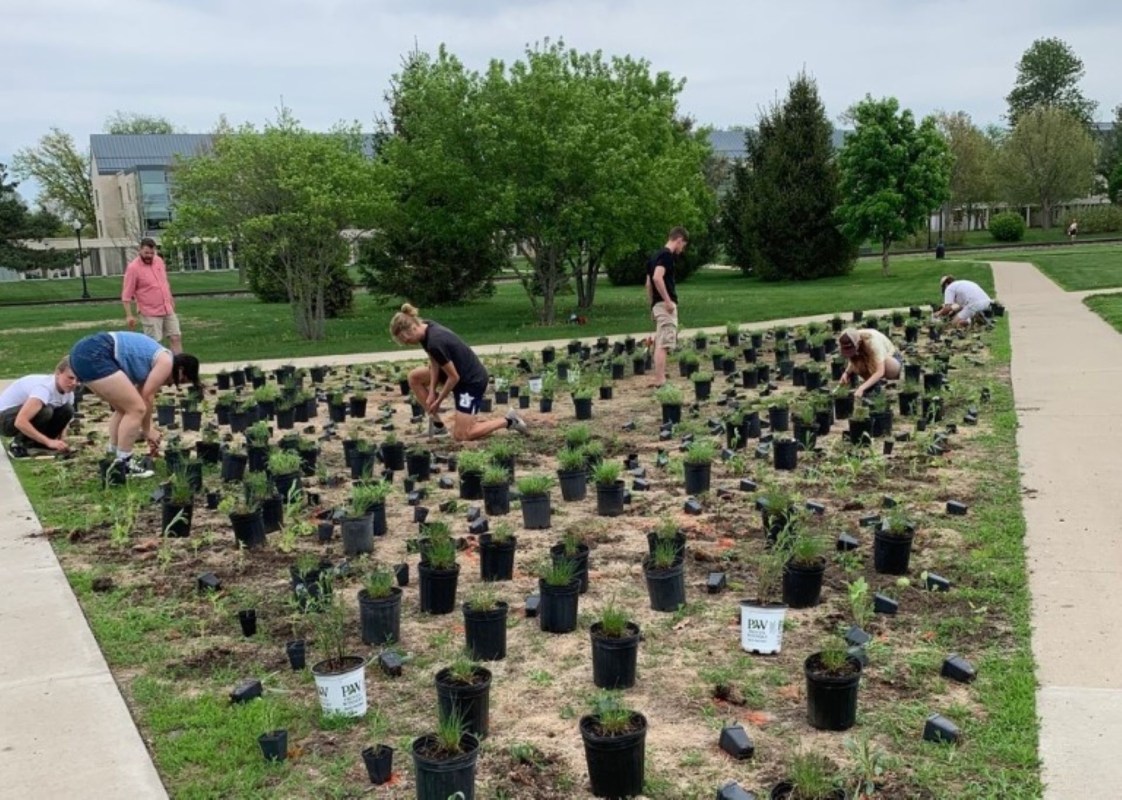Beautiful campuses with green lawns are traditional for colleges in the U.S. — which means heavy use of pesticides, fertilizer, and irrigation to keep the grass pristine. But in the past five years, that's started to change.
Axios reports that an environmental group called Re:wild Your Campus is convincing colleges to embrace organic lawn care.
What is organic lawn care?
Natural or organic lawn care means maintaining landscaping without harsh chemicals.
For example, Re:wild Your Campus encourages colleges to make their own compost instead of using chemical fertilizers and choose natural pest control solutions based on vinegar. This helps keep pesticides out of local water sources. Even excess fertilizer can cause pollution — but organic lawn care is designed to minimize this problem.
Re:wild Your Campus has even prompted some schools to redesign certain landscaping areas with native plants — which don't need as much water or maintenance as a standard lawn because the plants are already adapted to the local growing conditions.
Why choose organic lawn care and native plants?
There are two big environmental issues at play in these decisions.
The first is pollution. "Concerns about pesticides, chemical fertilizers, and herbicides such as Roundup have been upending landscaping," Axios says.
When these chemicals are applied to grass or other plants, rain and even water from sprinklers can carry them into local waterways. There, pesticides can enter drinking water or damage wildlife. Extra fertilizer in waterways also causes algae blooms — excessive algae growth that is harmful to fish and sometimes humans.
Organic lawn care cuts way back on the amount and types of chemicals being used.
The second issue is biodiversity, which the World Wildlife Fund defines as "all the different kinds of life you'll find in one area," including "animals, plants, fungi, and even microorganisms." More biodiversity helps create healthy environments.
Human activity can damage the biodiversity in an area by removing native plants and animals. Not only does this directly affect some species, such as native plants that are killed because they're seen as weeds, but it also hurts species that rely on them for food or shelter.
Protecting the biodiversity of an area often means preserving or restoring native plants. They encourage other species to return — for example, pollinating insects and birds that rely on native flowers for food.
This kind of restoration is becoming more common and has even won some legal protections thanks to the efforts of eco-conscious gardeners like this couple in Maryland.
That's the kind of transformation Re:wild Your Campus hopes for — and Axios reports that they've had some major wins, including a 5,000-square-foot plot of native prairie grass recently restored at Grinnell College in Iowa.
Join our free newsletter for cool news and actionable info that makes it easy to help yourself while helping the planet.









